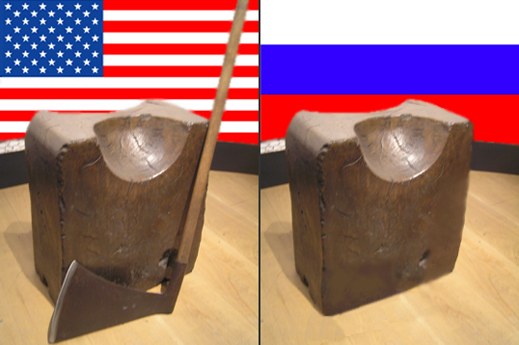
By John Helmer in Moscow
The US Government has decided not to let Victor Vekselberg off so easily.
The US District Attorney for the Southern District of New York (Manhattan) has filed for an extension of time to allow the Justice Department in Washington to consider a detailed brief, arguing that Vekselberg should face the full force of the American racketeering statute. This is the start of an attempt by the government to override a ruling by three appeals court judges last month that whatever Vekselberg had done, for good or ill, was beyond the jurisdiction of the Racketeer Influenced and Corrupt Organizations (RICO) Act.
For eight years Vekselberg has been arguing in the New York federal courts that claims against him by Alex Rotzang, owner of a junior Russian oil producer Yugraneft, cannot be tried in the US. The Court of Appeals decided on September 28 that RICO was not intended by the US Congress, when it enacted the law in 1970, to apply outside American territory. Because of the claims against Vekselberg involved “a conspiracy which primarily involves foreign actors and foreign acts,” the court dismissed it.
Rotzang’s lawyer, Bruce Marks, has applied for a rehearing of the argument by the full bench of the appeals court. The latest court document, filed by the District attorney, indicates that the US Government may support the rehearing, and back the Rotzang claim against Vekselberg, arguing that he should face trial in the New York court.
On Friday [October 15], the District Attorney’s office formally sought a 30-day extension of time from the court. “Although the present suit is a private civil suit,” the government application says, “the Court’s decision has potential implications for law enforcement use of RICO as well. In light of these potential implications and the need for Solicitor General approval of any decision by the United States to file an amicus curiae brief, see 28 C.F.R. § 0.20(c), the Government is in the process of conferring internally and with the Office of the Solicitor General concerning whether to file as amicus curiae in support of any petition for panel rehearing and/or rehearing en banc.”
This is not yet a decision by the government to go to court against Vekselberg, but that decision will be made within 30 days. “The Government will not be able to complete that process and file a brief (if the decision is made to do so) by October 27, 2010 (let alone October 22, 2010). Accordingly, the Government respectfully requests a 30-day extension beyond whatever date an amicus curiae brief would otherwise be due (if one of plaintiff-appellant’s extension motions is granted, either November 21, 2010, or November 26, 2010) to file an amicus curiae brief in support of any petition for panel rehearing and/or rehearing en banc.”
Norex Petroleum, a Calgary-based oil subsidiary of a California company owned by Rotzang, first filed its US claim in February of 2002. For five years earlier, it had been operating oilfields in the Tyumen region near the Tyumen Oil Company (TNK), then owned by a group of shareholders including Vekselberg.
The ‘Illegal Scheme’ which the court papers allege, “included the illegal takeover of Yugraneft, another Russian oil company of which Norex was majority shareholder, which was effected by TNK [now TNK-BP] in the ‘old fashioned way’ – through fraudulent representations, sheer physical force of armed thugs, and corruption of the local government, legal system and law enforcement, which refused to intervene and protect Norex’s rights. Immediately following the Illegal Takeover of Yugraneft, TNK seized its assets, including over $40 million which were held as dollar and ruble cash deposits and savings certificates and in excess of $500 million worth of oil production facilities, reserves, and receivables due from companies controlled by TNK. The Illegal Scheme has been masterminded, operated and directed by Access, Renova, Blavatnik, Vekselberg, Kukes, and Bakaleynik, through offices in New York City… and through mail and wire communications originating from and sent to the United States and travel between foreign jurisdictions and the United States.”
Bribery of Russian government officials, fraudulent bankruptcy, tax evasion, and money laundering through an elaborate offshore cash movement scheme are also alleged.
Norex sued for costs and losses, plus triple damages according to the RICO provisions. If Vekselberg and his associates are forced to trial, they are facing a liability of more than $2 billion.
Vekselberg has protested his innocence. His lawyers have also argued that true or false, innocent or guilty, the claims cannot be heard and adjudicated by an American court “because the principal actions and events underlying [its] claim occurred outside of the United States.”
The Manhattan case isn’t the only legal liability Vekselberg has been facing this month. Sources in Zurich report that he and his Renova group had been sued there by Mark Buzuk, Vekselberg’s long time partner in southern Africa. Buzuk, a Russian who had been an aluminium trader for Vasily Anisimov before he sold his smelters to Vekselberg’s SUAL group, has owned stakes in manganese mining and refining projects which Vekselberg has been developing in South Africa, as well as in a Kamchatka goldmining company, and uranium projects in Kyrgyzstan, Namibia, and Mongolia. In the past, Buzuk has claimed the credit for negotiating all of Vekselberg’s mining positions in Africa; a Buzuk company called Investment Partner appears to have represented Buzuk’s ongoing interest in those assets.
The Zurich court proceedings have been covered by confidentiality restrictions, and Buzuk has made no public statements. On October 5, Renova’s Moscow office said the group had acquired “stakes in the joint mining and metals businesses from investment fund Berkley Investments Limited Partnership and a number of entities related to Mark Buzuk.”
Berkley belongs to Buzuk. The implication is that Vekselberg and Buzuk have settled their differences in or out of the Swiss court, eliminating Buzuk’s role in Vekselberg’s manganese operations in South Africa, with this kiss-off: “the parties expressed gratitude to each other for their long-term cooperation.”











Leave a Reply